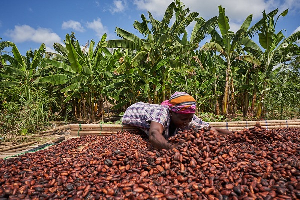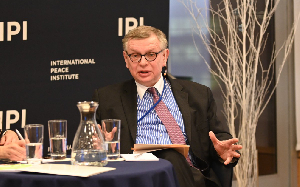General News of Friday, 27 January 2023
Source: www.ghanaweb.com
What parliament’s Standing Orders say about electing leadership
The recent announcement of leadership changes among the Minority Caucus in Parliament has triggered backlash, less on the front of its legality and more on the front of propriety and due process.
The Caucus is currently split with the outgoing Minority Leader, Haruna Iddrisu’s bloc questioning the manner in which the change was effected whereas the Cassiel Ato Forson bloc insists that the National Executives had the locus to ring the changes.
There is consensus that the election of leaders for the caucus is not contained in the party’s constitution but that consultation and engagement has over the years become the convention.
Member of Parliament for Buem, Kofi Adams, who has publicly backed the National Executives for the latest changes has explained that even though the party is mute on the issue, Parliament’s Standing Orders settles the matter.
He explained that per the Standing Orders, the responsibility of appointing leadership of the Minority or Majority Caucus rested with the party on whose ticket the person was elected.
“If you look at Article 110 of the Constitution, it recognizes that Parliament itself will have Standing Orders… 110 (1) says subject to the provisions of this Constitution, Parliament may by Standing Orders regulate its own procedure,” he said on Citi FM (January 25, 2023).
He cited the Standing Orders of 2000, specifically Order 7, which deals with interpretation of words and terms as used in Parliament.
“The Standing Order interprets who (in this case) a Minority Leader is: "Minority Leader means a Member of Parliament designated by the party and or parties and or members forming the Minority as their recognized leader.
“Our own Standing Orders recognize that it is the party or the parties if they are in alliance, they designate. It is only when they fail or they don’t act, it is only then that the members who form the Minority can now recognize somebody,” he explained.
A copy of the November 2000 Standing Order available to GhanaWeb reads: “Minority Leader" means a Member of Parliament designated by the Party having the largest numerical strength in Parliament other than the Party that has formed the Government, as the recognised Leader of all the Minority groups in the House.”
Meanwhile, new Minority Leader Ato Forson held a press conference this morning to accept the role and call for unity, later in the day, pro-Haruna MPs also held a press conference protesting the process involved in the new changes.
SARA/DO












